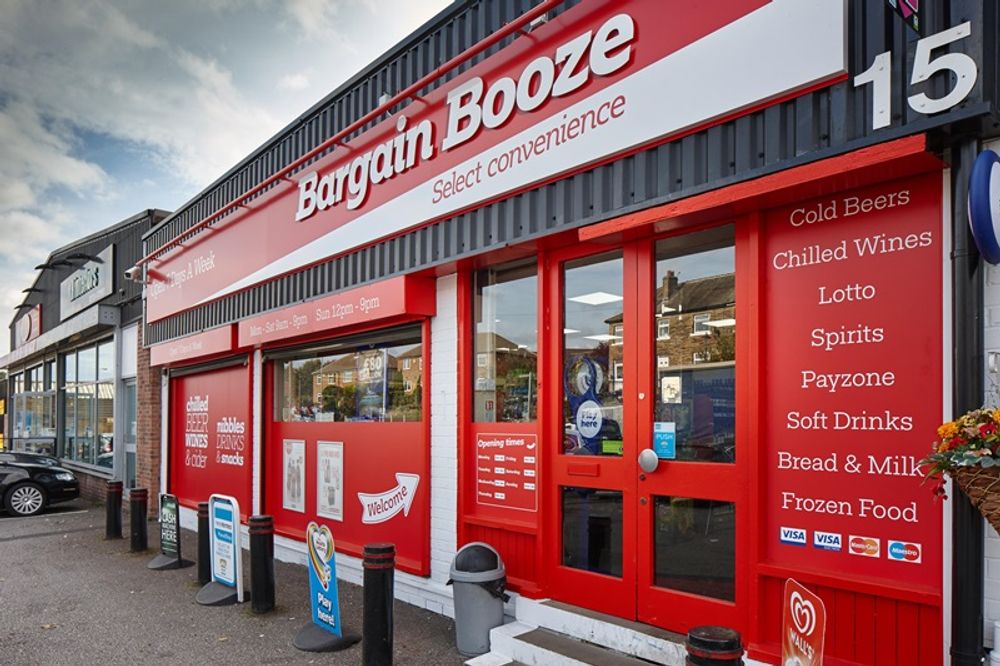Over the past year or so there has been an increasing scrutiny of some of the largest retailers and the effect the amount of debt they are carrying may have on their future capacity to continue trading. It’s worth remembering that the retail and wholesale trades are fiercely competitive and are, de facto, trying to force each other out of business. Alcoholic drinks suppliers are as exposed as any other to the consequences of their customers ceasing trading.
Some readers may have been affected by the failures of Thresher (First Quench) in 2009 and more recently Conviviality in 2018. Before I share some warning signs I should advise that I had seven years at Bargain Booze/Conviviality and was one of the executive team of three that floated it onto the AIM in 2013.
I left to start my own consultancy, Aiden Associates, in 2014 and Conviviality’s failure fewer than four years later was no surprise to me. It’s said that a key skill of any Executive is to “know when to declare victory and leave!”
Joking aside, that’s a key thing to look for when protecting your business. In my consultancy I apply some “big business” methodology to my small business clients. A key practice missing from most is having an individual in charge of a PESTLE report. That is an acronym - Political, Economic, Social, Technological, Legal and Environmental.
Eyes on the horizon

The Morrisons management team has come under shareholder and analyst scrutiny due to the retailer's high level of debts
In the day-to-day hustle of running a business it’s all too easy to get caught up in the weeds, but someone needs to be looking at the horizon - and over it. Keeping an eye on developments in these six areas can give those performing the function an advantage - because most small-businesses, and some larger ones, don’t.
Three major retailers have come onto the radar recently because of their ‘debt mountains’. Morrisons has £8.6 billion and interest payments are so huge that they contributed to the business losing £1.1bn in the last financial year. Lidl UK was sat on £3.1bn of debt in its last set of figures and Asda nearly £4bn. Having huge debts is not in itself a business-killer, but it’s a metric that, if you are supplying a business, needs to be monitored.
Red flags
So, what are some of the ‘red flags’ to look for? Some may be obvious, some less so, but the absolute priority if you are selling into the retail or wholesale trade is that someone in the team keeps an eye on your customers. In my consultancy I advise that a business should be able to survive losing the top 20% of its customer base.
Having a massive amount of, probably unpaid for, stock in a depot when the shutters come down can be terminal - so best manage your relationships closely and be in a position to reduce your exposure if those ‘red flags’ keep waving.
1) Read the accounts of all your main customers. Understand the direction of travel of ‘the numbers’.
2) Have a judgement on the quality of the management. What is their track record in the industry? Do they appear competent? Ask others in the trade for their opinion as well as having one of your own.
3) Loss of corporate memory. When a new chief executive goes in it’s often the case that the people who know how a business ‘works’ have their talents released to the market. Some churn is inevitable and sometimes it’s necessary to reinvigorate a business - but is it going too fast too soon? Are the new people really better than those being replaced?
4) Are you having to chase down payment more often?
5) Unexpected executive departures. There’s usually a reason - and it can be “to pursue other opportunities (to protect my reputation)”. Keep a close eye on the finance function and raise an eyebrow if senior people depart quickly or unexpectedly.
6) Unexpected non-executive director departures. Non-execs are there to keep the management “honest”. I have had non-exec positions and your reputation rides on the competent management of the business you are advising. A sudden departure after a short period in post could be a sign of an NED protecting their reputation.
7) If you’re dealing with a PLC look out for profit warnings.
8) If you are using credit insurers heed their judgment if they pull or reduce cover.

Keith Webb has worked with a number of high profile retail and drinks businesses including the Bargain Booze team that move the off-licence into the grocery convenience sector
I should share that you should also be aware of unnecessary contagion. Back in 2009 when First Quench went under we at Bargain Booze also had our credit rating cut. This was year three of the change programme that bought a convenience element into the business - a very wise strategic move by the then management who could see that being a 100% pure play off-licence would not be the best place to be in the long run.
The convenience element provided momentum, but Bargain Booze was downgraded simply because “if Thresher are in trouble you must be as well”. Confidence in the (pure) off-licence sector was declining. All suppliers quickly recognised that the management in place at that time did know what it was doing and that the business was actually moving forwards sustainably.
My key message is - make the time to monitor your customers properly. The Retail Gazette, after the dust settled on Conviviality, reported that: “Blatant issues within its management team drove potential rescuers well clear of making any investments.”
Whether it be that business, First Quench or any of the myriad retailers and wholesalers who have disappeared over the years, the "red flags” are often there in plain sight - for those who are looking for them.
* Keith Webb is a board adviser, NED and mentor and runs his own consultancy Aiden Associate. You can contact him at keithwebb860@btinternet.com.






























